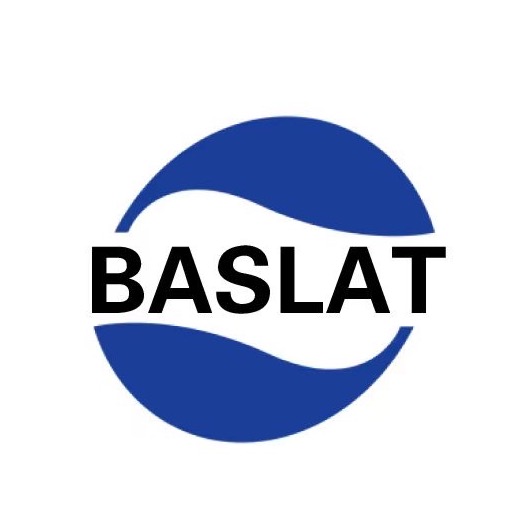XVIII World Water Congress
Beijing Declaration

The XVIII World Water Congress, hosted by the International Water Resources Association (IWRA) and the Ministry of Water Resources of the People’s Republic of China (MWR), was successfully held from 11 to 15 of September, 2023 in Beijing, China. With the theme “Water for All: Harmony between Humans and Nature,” the Congress reaffirmed the significance and irreplaceability of water as the vital source for life. In the face of uncertainties, risks and challenges induced by the changing environment, the Congress calls for global wisdom-sharing on water, collaboration on achieving the water-related goals of sustainable development, and building a community with a shared future of harmonious coexistence between humans and nature.
Extensive exchanges and in-depth discussions were conducted on the Congress theme and six sub-themes: 1) Water-Human-Economy (Agriculture, Industry, City…)-Ecology Nexus under a Changing Environment; 2) Promoting Water Efficiency, Productivity and Services; 3) Building Resilience for Disaster Prevention and Mitigation; 4) Supporting Aquatic Ecosystem Health and Functions; 5) Establishing Sustainable Water Infrastructures; and 6) Innovation for Water Governance and Management.
The Congress recognises:
Water is the source of everything, including humans and nature. It is unique and irreplaceable in terms of the birth, evolution, and long-term sustainable development of human society. The protection and rational use of water resources is a shared responsibility for all people and all countries and regions.
The scarcity of freshwater resources has become a significant constraint on economic and social development and on healthy ecosystems. Improving water use efficiency and effectiveness is fundamental to achieving harmonious coexistence between humans and nature, and achieving the Sustainable Development Goals. Every individual and organisation, every enterprise and industry, every country and region, shall do their best to conserve water, and to rationally and efficiently develop and utilise water resources.
Innovative approaches to water resources management are necessary to address the impacts of climate change and global development. Water professionals and managers should not only focus on utilisation and protection of water resources, but also consider the rational utilisation and protection of all water-related natural resources and ecosystems, as well as economic and social development.
Since we live on the same planet and face common water problems and challenges, we need to exchange ideas and experiences on water governance. As the host country of the Congress, China has adopted innovative approaches to water governance – “prioritizing water conservation, balancing water distribution in time and space, and taking a systematic approach to water management with the synergy of government and market”. China is sharing with the rest of the world its experience in guaranteeing the right to safe drinking water for all, improving water security capabilities, and achieving the Sustainable Development Goals. These achievements have been made under conditions of overall water shortages, extremely uneven spatiotemporal distribution of water resources, frequent occurrence of floods and droughts. This approach demonstrates the spirit of mutual understanding and cooperation proposed by the 2023 UN Water Conference.
The Congress calls for:
Efficient utilisation and protection of water resources. As an important conference in the international field of water resources following the 2023 UN Water Conference, we — experts, scholars and managers from all over the world — continue to call for all countries and regions to make every effort to achieve the water-related Sustainable Development Goals, while also improving the rational development, efficient utilisation, optimised distribution, systematic approach, and effective protection of water through various aspects such as national policy, innovative technology and methods, information sharing, capacity building, investment and financing, and public participation.
Innovative concepts, technologies, policies, and management on water governance. Facing new problems induced by climate change and other global challenges, we need to develop new knowledge on water, innovate water management concepts, methodologies and technological products, and reform water management systems and mechanisms based on tradition, in order to respond to the complexities of climate change and ensure sustainable economic and social development while protecting vital ecosystems.
Scientific decision-making in water resources management. Water is a key element in complex natural ecosystems and in economic and social systems. Water practitioners should have a deeper understanding, through multidisciplinary research, of the complex relationship among water, land, and the ecosystems, as well as the integrated nexus between water, food, energy, health, and economic development, in order to balance the needs of populations, economy, natural resources and the environment, and maximise the supportive role of scientific decision-making in water management and policy formulation.
Water issues solution for poverty reduction. Water insecurity induces poverty and constrains economic growth in many parts of the world. All nations should strive to provide clean drinking water and sanitation facilities, enhance water security capabilities for residents in impoverished areas, including vulnerable groups in developed countries. Active participation of the private sector is encouraged to improve water governance. Developed countries should provide necessary technical assistance and financial support to developing countries to achieve sustainable utilisation of water resources and sustainable economic and social development.
Water science dissemination, and water literacy and awareness improvement. Efforts should be made to upgrade the level of water knowledge education all over the world, to encourage more people to care about, love, save and protect water, to respect river and lake ecosystems, and to recognise, use, manage and protect water in a more scientific and sustainable manner.
Sharing of experiences and solutions to jointly address water challenges. It is essential to promote international exchange and cooperation in scientific research, technological innovation, and management practice in the field of water resources, enhance mutual understanding and support, foster harmonious coexistence between humans and nature, and work together to accelerate the realisation of the Sustainable Development Goals and to create a greener, more peaceful, and more sustainable world.



